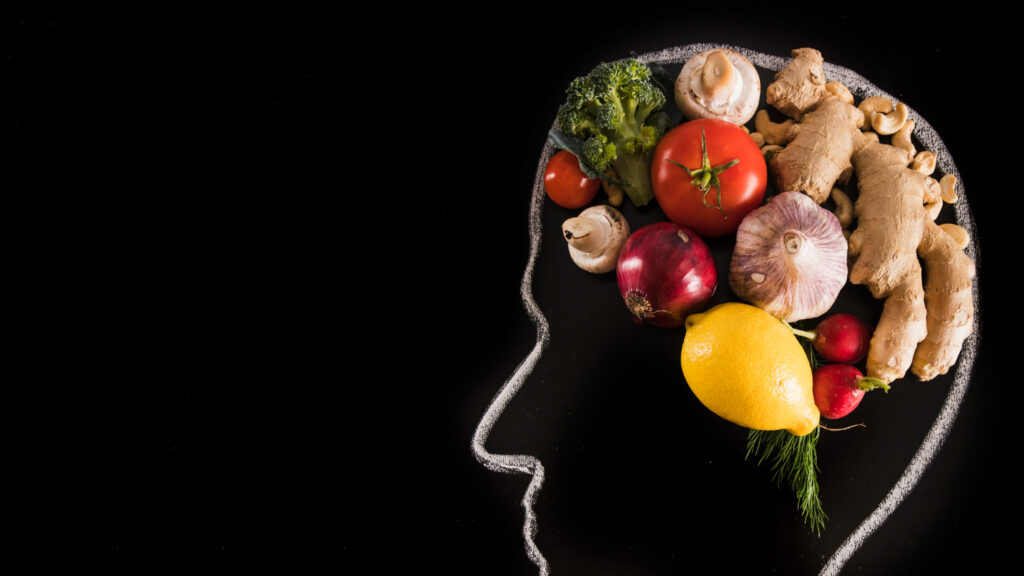We often hear the phrase “you are what you eat,” but did you know that what you eat can directly impact how you feel — emotionally and mentally?
Emerging research is uncovering a powerful connection between nutrition and mental health, revealing that your brain and gut are more deeply linked than once believed. Whether you struggle with anxiety, depression, or just want to boost your mood and mental clarity, the food you eat plays a bigger role than you might think.
In this article, we’ll break down the science behind the food-mood connection, key nutrients that influence brain function, and how to eat for better mental well-being.
???? How Nutrition Affects Your Mental Health
1. The Gut-Brain Connection
Your gut and brain communicate constantly through a pathway called the gut-brain axis. This connection means that the health of your digestive system can directly influence your mood, memory, and even stress response.
- Your gut is home to trillions of bacteria, known as the gut microbiome.
- These microbes help regulate mood by producing neurotransmitters like serotonin (often called the “feel-good hormone”).
- In fact, up to 90% of serotonin is produced in the gut!
When your gut microbiome is healthy and diverse, your brain functions better. When it’s out of balance — often due to poor diet, stress, or antibiotics — mental health can suffer.
2. Blood Sugar and Mood
Eating highly processed or sugary foods causes blood sugar spikes and crashes, which can lead to:
- Irritability
- Fatigue
- Brain fog
- Increased anxiety
Keeping blood sugar stable through balanced meals helps keep your energy and mood more consistent throughout the day.
???? Nutrients That Support Brain Health
???? 1. Omega-3 Fatty Acids
- Found in: Fatty fish (salmon, sardines), chia seeds, flaxseeds, walnuts
- Role: Reduce inflammation in the brain and support mood regulation
- Linked to: Lower risk of depression and cognitive decline
???? 2. B Vitamins (especially B6, B12, and Folate)
- Found in: Leafy greens, eggs, legumes, whole grains, fortified cereals
- Role: Help produce neurotransmitters and support brain function
- Deficiency is linked to: Depression, fatigue, brain fog
???? 3. Magnesium
- Found in: Nuts, seeds, dark chocolate, spinach, avocados
- Role: Calms the nervous system and helps with stress and sleep
- Low levels are associated with: Anxiety and insomnia
???? 4. Probiotics & Fermented Foods
- Found in: Yogurt, kefir, sauerkraut, kimchi, miso
- Role: Improve gut health and support the gut-brain axis
???? 5. Antioxidants (Vitamin C, E, Polyphenols)
- Found in: Berries, oranges, nuts, dark chocolate, green tea
- Role: Protect the brain from oxidative stress and inflammation
???? Foods That Can Hurt Mental Health
- Highly processed foods (chips, fast food, refined carbs)
- Sugary drinks and snacks
- Artificial sweeteners (may disrupt gut bacteria and mood)
- Trans fats and excessive saturated fats
These foods are linked to increased risk of depression, anxiety, and poor cognitive performance.
???? How to Eat for Better Mental Health
✅ Do:
- Focus on whole, unprocessed foods
- Eat a variety of fruits, vegetables, whole grains, and lean proteins
- Include healthy fats like nuts, seeds, and olive oil
- Drink plenty of water
- Try to eat regularly to keep blood sugar stable
❌ Avoid:
- Skipping meals or extreme calorie restriction
- Bingeing on sugary or high-carb snacks when stressed
- Relying on caffeine or energy drinks for focus
???? Final Thoughts
Food isn’t just fuel — it’s information for your brain. The nutrients (or lack thereof) you put into your body can either support your mental health or slowly erode it.
If you’re struggling with anxiety, low mood, or stress, consider looking at your plate. Even small dietary changes can lead to noticeable improvements in mood, focus, and overall mental clarity.
Mental health care isn’t only therapy and medication — it’s also nutrition.

